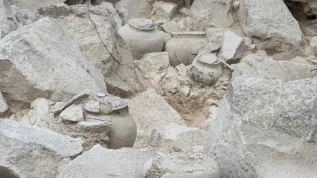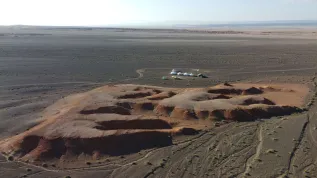
The way violent historical events are geographically described can significantly influence public perceptions of responsibility, according to new research.
Dr. Lucas B. Mazur, whose findings are published in the journal Group Processes & Intergroup Relations, found that even subtle differences in language can shape national narratives and collective guilt.
A researcher at Jagiellonian University’s Institute of Pedagogy within the Faculty of Philosophy, conducted a series of four studies involving more than 800 participants of German origin.
His work investigated how the identification of a location, such as calling a concentration camp “Polish” or “German”, impacts who is seen as responsible for acts of historical violence.
“Specific geographical terms can shape collective guilt and create lasting social narratives around difficult historical events,” Mazur said.
In one experiment, participants read short texts about a World War II guard. The camp was alternately described as “German,” “Polish,” “Ukrainian,” or left without national identification. Participants consistently assigned greater collective responsibility to the nation named in the geographical description.
Another study compared reactions to a story about a Nazi collaborator who either lived in Lublin, Poland, or Linz, Austria. Despite identical storylines, participants attributed more blame to Poles or Austrians depending on the version they read.
“Despite the relatively high level of historical education in Germany about the Holocaust and World War II, geopolitical framing still influences perceptions of collective responsibility for Nazi violence, which is a particularly striking example of this effect,” Mazur said.
Further research revealed that the framing effect persisted over time. Days after reading the stories, participants continued to assign responsibility in line with the original geographical descriptions. Moreover, the effect transferred to others: people who heard the stories second-hand were similarly influenced by the original framing.
Mazur added that the findings show that language has political and social power, with even minor changes in phrasing can shift how individuals and groups perceive responsibility for the past.
He concluded that professionals involved in historical education and representation, including journalists, teachers, and museum curators, should be conscious of the language they use, particularly in reference to sensitive or violent historical events.
rgr/ zan/













